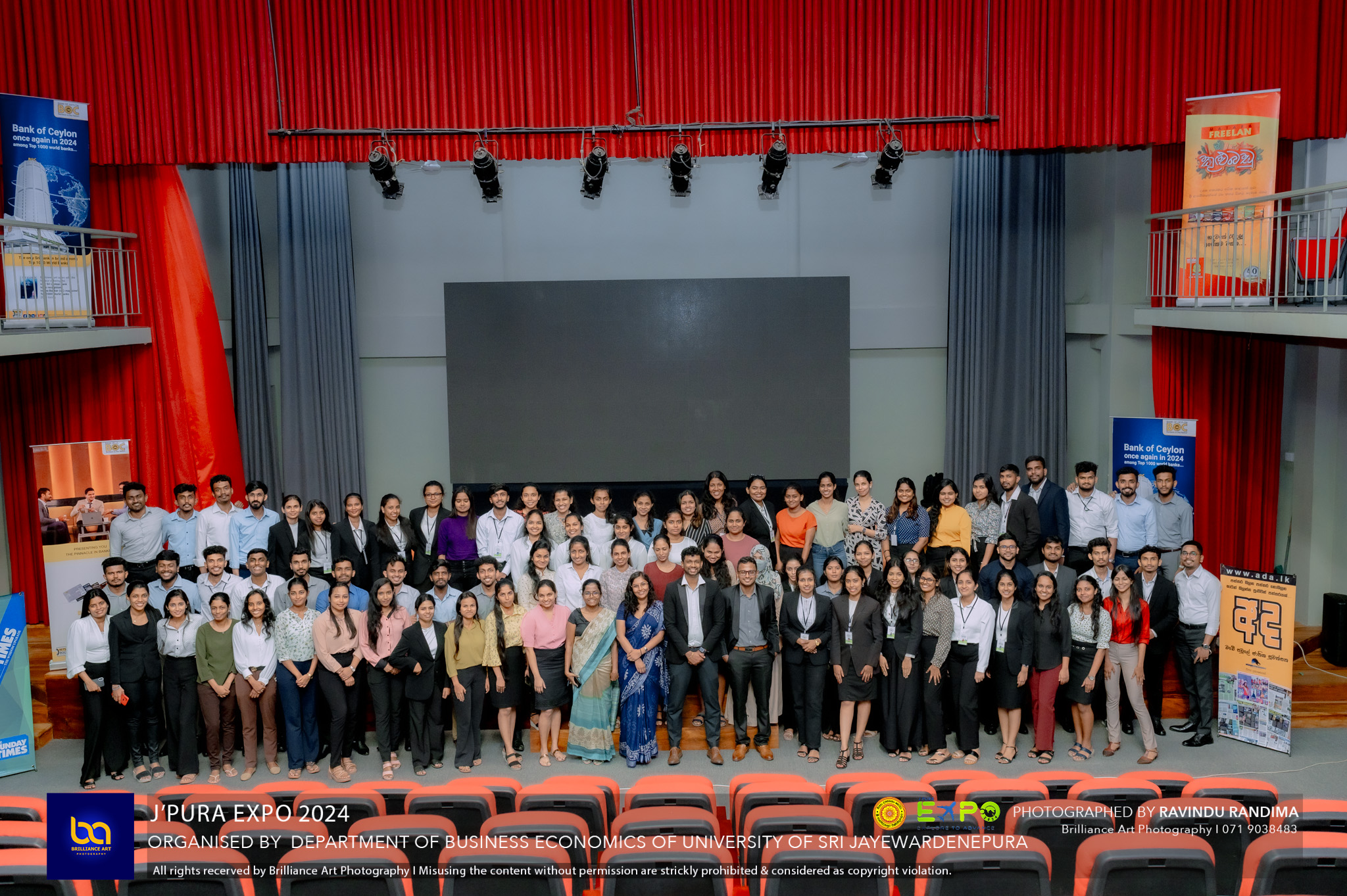The course is designed to equip students with knowledge of commercial banking practices in the regulatory framework and their contribution to economic growth and development. This course examines the ways in which modern commercial banks are operating in the face of various shocks, locally or internationally, such as economic and political, and how these operating practices contribute to economic growth and development of modern economies. It covers topics of commercial banks and their regulatory framework, commercial banking practices in reaching economic development and commercial banking in the global economy. To follow this course, students should complete Microeconomics and Macroeconomics courses as the pre-requisites.
- Lecturer: Mr. Pasindu Dissanayake
- Lecturer: Prof. Ananda Rathnayaka
- Lecturer: Ms. Sathsarani Weerasinghe
- Lecturer: Ms. Sepali Bamunusinghe
- Lecturer: Dr. Maduranga Withanawasam
This is an advanced course with the objective of analysing the monetary theory to understand the effect of change in monetary variables on the macroeconomic system. It introduces and solves number of models allowing students to see exactly how these models work and what differentiates one from another. This is a compulsory course which covers topics of money supply, money demand, monetary policy transmission mechanism, inflation and optimal inflation rate, neutrality of money, monetary policy targets and rules, monetary policy in open economies, time inconsistency of monetary policy, uncertainties of monetary policy designs and monetary policy frameworks. At the end of this course, students should be able to understand and analyse monetary links in the context of monetary policy transmission mechanism. Microeconomics and Macroeconomics are pre-requisites for this course.
- Lecturer: Ms. Udeshika Chandrarathne
- Lecturer: Mr. Pasindu Dissanayake
- Lecturer: Ms. Dileesha Sewwandi
- Lecturer: Ms. Sathsarani Weerasinghe

This advanced course provides the students with knowledge and skills on Project Management in business organisations or entirely project-based organisations. This is a compulsory course which covers the theoretical foundation of Project Management techniques, software training and practical elements of real-world projects undertaken by the students. This course studies the nine basic Project Management knowledge areas: project integration management, scope management, schedule management, cost management, quality management, human resource management, risk management, communication management and procurement management. In addition, the students undergo a thorough training in MS Project software (usually the latest accessible version) to be competent in meeting the challenges in the real business setup under project management. This course enables the students to manage a project effectively throughout its life cycle and to use MS Project software to apply those principles and techniques discussed. Pre-requisites of this course are Principles of Management, Microeconomics, Human Resource Management, Financial Management and Operations Management.
- Lecturer: Mr. Pasindu Dissanayake
- Lecturer: Prof. Janaka Fernando
- Lecturer: Mr. Asel Hettiarachchi
- Lecturer: Ms. Oshadhie Silva
This course is offered to BSc (Hons) Human Resource Management Degree Programme. This is an extended analysis of microeconomics and macroeconomics with specific focus on the labour market. This course aims to provide students with a comprehensive knowledge and understanding of the application of microeconomic and macroeconomic theories to the labour market. The areas covered in the course include labour demand, supply and elasticities, frictions in the labour market, decision to work/leisure, compensating wage differentials, investment in human capital, worker mobility, pay and productivity, unions and the labour market, gender, race and inequality in earnings, employment and unemployment, and the impact of labour market on international trade and production sharing. At the end of this course, students will be able to analyse how individuals, families, firms, and government operate within the contemporary labour market and the impact of labour market on government policy and vice versa. The pre-requisites of this course are Microeconomics and Macroeconomics.
- Lecturer: Ms. Amanda Perera
- Lecturer: Ms. Dileesha Sewwandi
- Lecturer: Dr. Maduranga Withanawasam
This course integrates the theory of finance and financial institutions into the main body of economic theory with the aim of providing students with an in-depth understanding of overall financial market. This is an extended analysis of Microeconomics and Macroeconomics courses with a special focus on the financial market. This course is compulsory for Banking Students and elective for Development Studies and International Economics and Business students. It covers the areas of behaviour of interest rate, the risk and term structure of interest rates, theories of the term structure of interest rates, interest rate and bond market, the efficient markets theory, economic analysis of financial structure and the foreign exchange market. This course enables the students to gain a profound knowledge of financial markets in a microeconomic and macroeconomic context and to develop analytical skills and thinking ability to evaluate the behaviour of national and international financial markets and institutions. Business Mathematics, Business Statistics, Microeconomics and Macroeconomics courses provide the pre-requisites for this course.
- Lecturer: Ms. Oshadhie Silva
- Lecturer: Prof. Kumudini Sriyalatha
